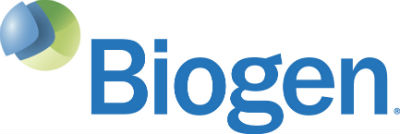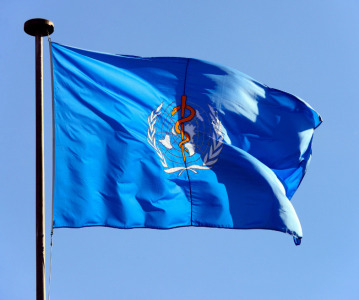Spinraza approved in the EU as first treatment for spinal muscular atrophy

Robust data from Phase III studies demonstrated positive impact on motor milestone achievement; increased survival in infants with SMA.
The European Commission (EC) has granted a marketing authorization for Spinraza (nusinersen) for the treatment of 5q spinal muscular atrophy (SMA). 5q SMA is the most common form of the disease and represents approximately 95% of all SMA cases. Spinraza, which was reviewed under the European Medicines Agency’s (EMA) accelerated assessment program, is the first approved treatment in the European Union (EU) for SMA, a leading genetic cause of death in infants.
“Today we join individuals and families affected by SMA across Europe in celebrating the approval of Spinraza. Based on the robust efficacy and safety profile demonstrated in the clinical trials, we believe Spinraza will have a meaningful impact on infants, children and adults living with this devastating disease,” said Michel Vounatsos, CEO at Biogen. “As part of our mission to improve the lives of those affected by SMA, we remain steadfast in our commitment to work with healthcare professionals, advocacy groups and government agencies to ensure people who could benefit from SPINRAZA receive access to this important treatment as quickly as possible.”
The approval of Spinraza is primarily based on results from two pivotal multicenter, controlled studies, including end of study data from ENDEAR (infantile-onset SMA) and an interim analysis of CHERISH (later-onset SMA), both of which demonstrated the clinically meaningful efficacy and favorable benefit-risk profile of Spinraza. The approval was also supported by open-label data in pre-symptomatic and symptomatic individuals with, or likely to develop, Types 1, 2 and 3 SMA.
In the ENDEAR end of study analysis, a statistically significant greater percentage of patients achieved the definition of motor milestone responder in the Spinraza group (51%) compared with the sham-control group (0%). Some infants in the Spinraza group achieved motor milestones including full head control, ability to roll, sitting, and standing. Additionally, infants treated with Spinraza demonstrated a statistically significant reduction (47%) in the risk of death or permanent ventilation.
In the CHERISH pre-specified interim analysis, there was a statistically significant and clinically meaningful improvement in motor function in children with later-onset SMA (most likely to develop Type 2 or Type 3) treated with Spinraza compared with untreated children. Improvements were measured by the Hammersmith Functional Motor Scale Expanded (HFMSE) and demonstrated a treatment difference of 5.9 points in the mean change from baseline to Month 15 in the HFMSE score.
“The overall clinical findings support the efficacy and safety of Spinraza in a broad range of individuals with SMA, including significant improvements in motor development and reduction in risk of death in infants,” said Prof. Dr Jan Kirschner from the Medical Center University of Freiburg, Germany. “These unprecedented improvements bring new hope to a community where there previously were no approved treatments available to address the loss of motor function over time. We are now seeing motor improvements with Spinraza that are never seen in the natural course of the disease.”The timing of Spinraza availability in the EU will vary by country, per local reimbursement and access pathways. Biogen has been working with health systems and government agencies across the EU to help patients secure access to Spinraza.
In 2016, in response to the urgent need for treatment for the most severely affected individuals living with SMA, Biogen sponsored one of the largest, pre-approval Expanded Access Programs (EAP) in rare disease free of charge. The EAP has led to the initiation and ongoing treatment of more than 350 eligible individuals with infantile-onset SMA (most likely to develop Type 1) in 17 European countries.
Related News
-
News Pharmaceutical industry supports COP28 health stance in joint statement
As COP28 takes place over this week in Dubai, UAE, several bodies in the pharmaceutical and health industries have come together to announce support of key movements in sustainability in the sector, and to recognise sustainability as a health issue.&nb... -
News Biden backs Cold-War measures to shore-up medical supply chains
In a recent strategy to combat rising inflation and the cost of living crisis, President Joe Biden has invoked a Cold War-era act to increase investment in a selection of medicines and supplies. -
News CPHI Podcast Series: What does the changing US Pharma market mean for industry and patients alike?
In this week's episode of the CPHI Podcast Series Lucy Chard, Digital Editor for CPHI Online is joined by James Manser to discuss the political and market changes in the US pharma field. -
News Which 10 drugs are open to price negotiation with Medicare in the USA?
The Centres for Medicare & Medicaid Services, under the Biden administration in the USA, has released a list of the 10 drugs that will be open to price negotiations as part of the new legislation under the Inflation Reduction Act (IRA). -
News 10 Major Drug Approvals So Far in 2023
Last year, 37 novel drugs were approved by the FDA, this was a high number for such a category, and covered many fields including oncology, demonstrating how promising further research is, and how it is only continuing to build. To date, there are alre... -
News Novartis agrees for copies to be made of cancer drug to reach poorer countries
Novartis signs agreement with MPP to have generics of it's leukemia drug made so that it can be more easily distributed to the world's poorer countries. -
News CPHI Podcast Series: outsourcing and manufacturing trends
Listen to the CPHI Podcast Series this June to hear Gil Roth of the PBOA speak with Digital Editor Lucy Chard about the biggest trends and topics to watch in pharma outsourcing and manufacturing at the minute. -
News New WHO health emergency guidelines expect full transparency from Big Pharma
The WHO are proposing a new set of pandemic guidelines to set out how future global health crises should be handled.
Position your company at the heart of the global Pharma industry with a CPHI Online membership
-
Your products and solutions visible to thousands of visitors within the largest Pharma marketplace
-
Generate high-quality, engaged leads for your business, all year round
-
Promote your business as the industry’s thought-leader by hosting your reports, brochures and videos within your profile
-
Your company’s profile boosted at all participating CPHI events
-
An easy-to-use platform with a detailed dashboard showing your leads and performance







